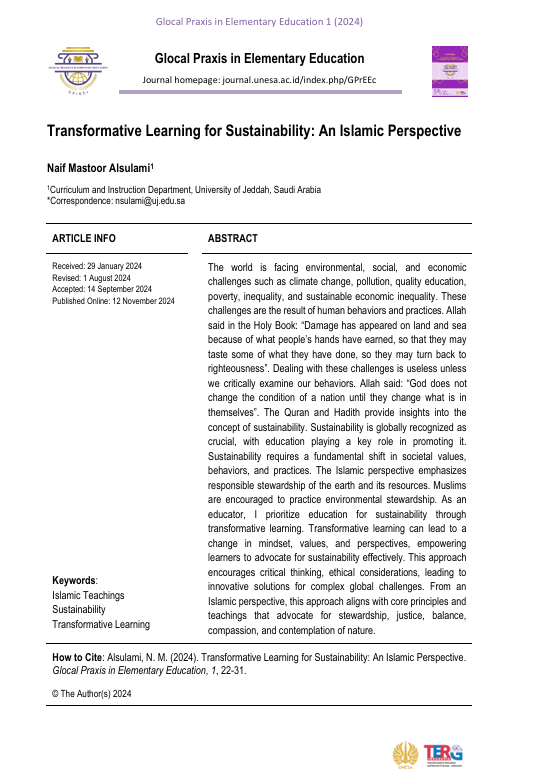Transformative Learning for Sustainability: An Islamic Perspective
Keywords:
Islamic Teachings, Sustainability, Transformative LearningAbstract
The world is facing environmental, social, and economic challenges such as climate change, pollution, quality education, poverty, inequality, and sustainable economic inequality. These challenges are the result of human behaviors and practices. Allah said in the Holy Book: “Damage has appeared on land and sea because of what people’s hands have earned, so that they may taste some of what they have done, so they may turn back to righteousness”. Dealing with these challenges is useless unless we critically examine our behaviors. Allah said: “God does not change the condition of a nation until they change what is in themselves”. The Quran and Hadith provide insights into the concept of sustainability. Sustainability is globally recognized as crucial, with education playing a key role in promoting it. Sustainability requires a fundamental shift in societal values, behaviors, and practices. The Islamic perspective emphasizes responsible stewardship of the earth and its resources. Muslims are encouraged to practice environmental stewardship. As an educator, I prioritize education for sustainability through transformative learning. Transformative learning can lead to a change in mindset, values, and perspectives, empowering learners to advocate for sustainability effectively. This approach encourages critical thinking, ethical considerations, leading to innovative solutions for complex global challenges. From an Islamic perspective, this approach aligns with core principles and teachings that advocate for stewardship, justice, balance, compassion, and contemplation of nature.

Downloads
Published
Issue
Section
 Abstract views: 93
,
Abstract views: 93
, PDF Downloads: 217
PDF Downloads: 217

